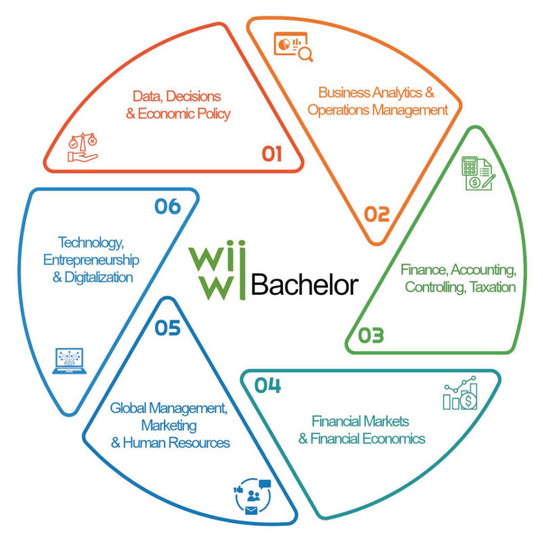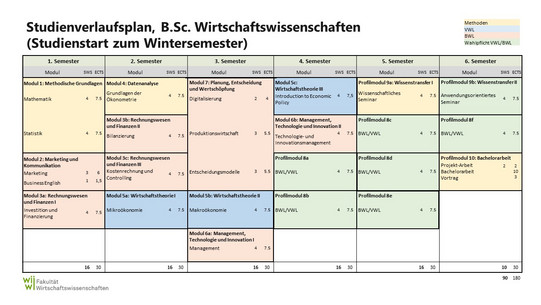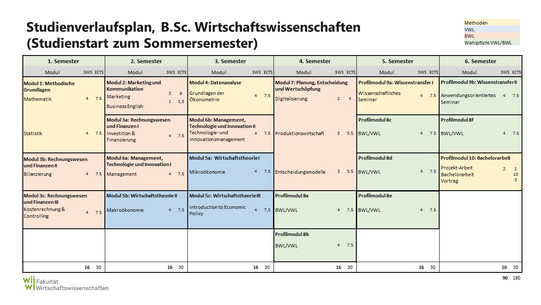Competence Profiles for Bachelor Students
Competence profiles enable the students to tailor their studies to their personal interests and strengths, preparing them for their future careers.
Students may choose from a total of six profiles. Six courses are then attended within the chosen profile. At least two of the courses must be from business studies and two from economics. In addition, the seminars from modules 9a and 9b as well as the Bachelor's thesis are selected from the courses offered within the competence profile.
Competence Profiles (Module 8-10)
The Students can choose a competence profile to match their individual strengths and areas of interest. More detailed information on the individual profiles is linked here. An overview of the courses offered by the respective professorships within a competence profile can be found on the last pages of the module handbook.
| Competence Profile | Matching areas of interest and strengths |
|---|---|
| Business Analytics and Operations Management |
|
| Data, Decisions, Economic Policy |
|
| Finance, Accounting, Controlling, Taxation |
|
| Financial Markets and Financial Economics |
|
| Global Management, Marketing, and Human Resources |
|
| Technology, Entrepreneurship, and Digitalization |
|
Guidance and Information
In case of any further questions, students can contact Jessica Donato, the department's Manager for Studies and Teaching, or the Departmental Examinations Office.












